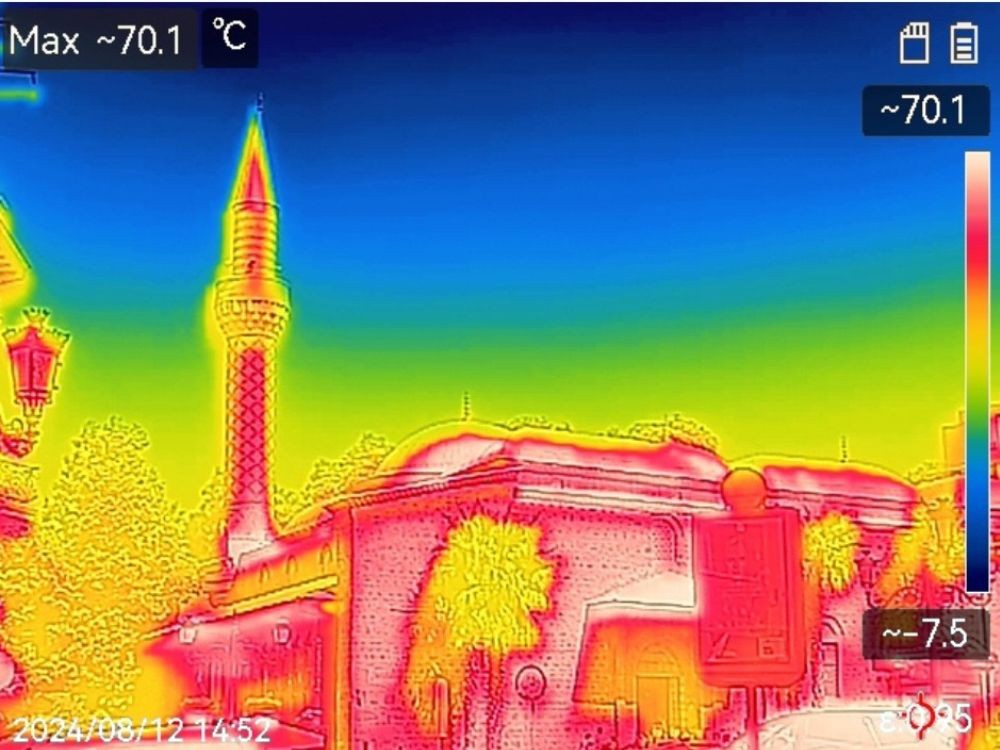During the hottest days of summer, members of Greenpeace travel around the country to show how hot it really is in the urban environment. With the help of thermal cameras, they detect the temperature around the buildings, which in places like Plovdiv reaches up to 70°C. The experiment wants to draw attention to the problem of lack of green areas in cities.

The main goal of these studies, according to director of Greenpeace Bulgaria, Meglena Antonova, is to show that cities are getting hotter because of the urban heat island effect. This extra heat is caused by exhaust fumes, dark asphalt and building materials and lack of vegetation. Climate change is already exacerbating the problem.
According to a recent study by the Barcelona Institute of Global Health, trees can reduce the death rate during heat waves in cities by one third.
Photos: Greenpeace-Bulgaria
Bulgarians across the country are welcoming the New Year with various initiatives. More than 20 members of the club of karate and yoga coach Emil Zlatev in Varna traditionally swam in the sea on January 1. They say that they never..
The President of the Republic of Bulgaria Rumen Radev has congratulated all Bulgarians at home and around the world on the arrival of the New Year 2025 and wished them peace, health and prosperity. "The world is sending off a year..
Traditionally, the citizens of Sofia and guests to the capital can welcome the New Year 2025 together at the central Knyaz Alexander I Battenberg Square. The celebration today, December 31, begins at 21.30. Some of the most popular Bulgarian pop and..
Novo Oryahovo is a village in north-eastern Bulgaria. It is located in a picturesque corner in the municipality of Dolni Chiflik - 2 km..

+359 2 9336 661
